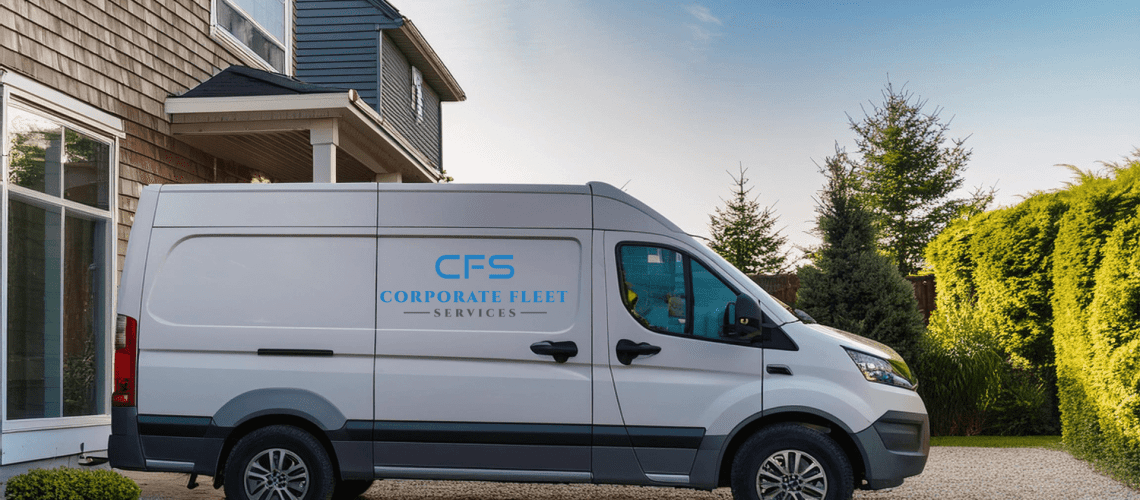Why Should Your Small Business Lease a Utility Van?
Leasing a utility van can be a game-changer for your small business, especially if you’re in the HVAC, plumbing, or electrical industry. It’s more than just a vehicle; it’s a mobile office, a storage unit, and a powerful marketing tool all rolled into one. Let’s explore the reasons why leasing a utility van should be your top priority.
Improved Efficiency and Productivity
- Mobile Workspace: A well-equipped utility van becomes your mobile office. You can store tools, parts, and equipment efficiently, saving you time and effort.
- Time Management: With everything you need at your fingertips, you can reduce travel time between jobs and increase your productivity.
- Professional Image: A clean, well-maintained van reflects your business’s professionalism and reliability.
Cost-Effective Solution
- Lower Upfront Costs: Leasing requires a smaller upfront payment compared to buying a van outright, preserving your cash flow.
- Predictable Expenses: Consistent monthly lease payments make budgeting easier and help you avoid unexpected repair costs.
- Tax Benefits: Lease payments can often be tax-deductible, providing additional financial advantages.
Upgrade Your Fleet Regularly
Leasing allows you to drive newer vehicles with the latest technology and safety features. This can enhance your team’s comfort and efficiency while maintaining a modern fleet image.
The Impact on Your Business Image
- Awareness: A branded utility van is a moving billboard, showcasing your business name, logo, and contact information.
- Customer Trust: A well-maintained van reflects your commitment to quality and reliability, building trust with potential customers.
- Marketing Opportunity: Use your van as a canvas for promotional messages, special offers, and customer testimonials.
Choosing the Right Lease
- Vehicle Size: Select a van that can accommodate your tools and equipment while being maneuverable for urban environments.
- Lease Terms: Consider factors like mileage limits, wear and tear policies, and early termination fees.
- Maintenance Coverage: Some leases include maintenance, while others require you to cover these costs.
Additional Benefits of Leasing
- Reduced Insurance Costs: Leasing often comes with lower insurance premiums compared to owning a vehicle.
- Environmental Impact: Newer vehicles tend to be more fuel-efficient, reducing your carbon footprint and operating costs.
- Focus on Your Core Business: By leasing a van, you can concentrate on your core services without worrying about vehicle ownership hassles.
Leasing vs. Buying: A Cost Comparison
Let’s delve deeper into the financial implications of leasing versus buying a utility van. While the initial outlay for leasing is lower, it’s essential to consider the long-term costs.
- Total Cost of Ownership (TCO): Compare the total cost of owning a van, including purchase price, insurance, maintenance, repairs, and depreciation, to the total cost of leasing over a specific period.
- Tax Implications: Explore the tax benefits associated with both leasing and buying, considering factors like depreciation deductions and lease payments.
- Market Fluctuations: Discuss how changes in vehicle prices and interest rates can impact the decision to lease or buy.
- Image Placement: A graph or table comparing the monthly costs of leasing and owning a utility van.
Upfitting Your Utility Van
Maximizing the utility of your van involves careful planning and customization. Consider these upfitting options:
- Storage Solutions: Explore shelving, drawer systems, and tool organizers to optimize space and accessibility.
- Technology Integration: Discuss the benefits of installing GPS tracking, mobile payment systems, and in-vehicle communication devices.
- Upgrades: Installation of ladder racks, refrigeration, water pumps, and other equipment can tailor your vehicle to your needs.
- Image Placement: A before-and-after image of a utility van being upfitted.
Vehicle Maintenance and Repair
While leasing often includes maintenance coverage, understanding the details of your lease agreement is crucial.
- Lease Terms: Clarify the scope of maintenance covered by the lease, including routine services and potential repair costs.
- Preventive Maintenance: Highlight the importance of regular inspections and maintenance to prolong the life of your van.
- Emergency Repairs: Discuss how to handle unexpected breakdowns and the potential costs involved.
Finding the Right Leasing Deal
Securing a favorable lease agreement requires careful research and negotiation.
- Lease Comparison Tools: Introduce online resources that can help you compare lease offers from different dealerships.
- Negotiation Tips: Provide guidance on how to negotiate lease terms, including monthly payments, mileage limits, and early termination fees.
- Dealer Incentives: Discuss potential incentives and rebates offered by dealerships.
The Environmental Impact of Leasing
Leasing can contribute to a greener fleet due to access to newer, more fuel-efficient vehicles.
- Lower Emissions: Highlight the environmental benefits of driving a newer van with improved fuel economy.
- Electric and Hybrid Options: Explore the availability of electric or hybrid utility vans and their potential cost savings.
- Sustainable Practices: Encourage eco-friendly driving habits and vehicle maintenance practices.
Considering your Van Fleet Lease
By carefully considering the factors outlined in this blog, you can make an informed decision about whether leasing a utility van is the right choice for your small business. By optimizing your van’s functionality, managing costs effectively, and minimizing your environmental impact, you can position your business for long-term success.

